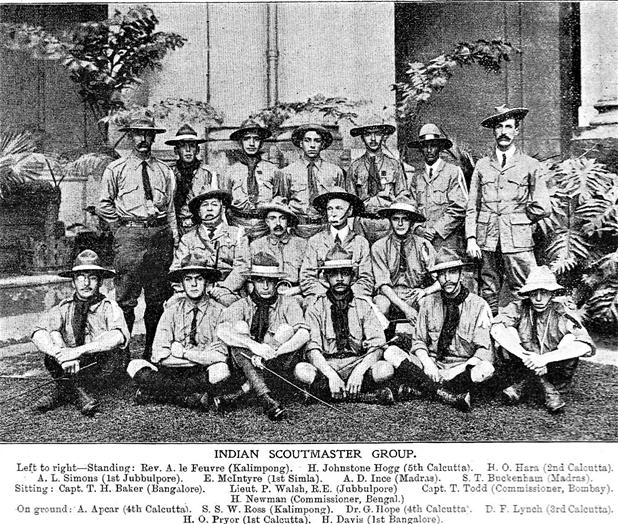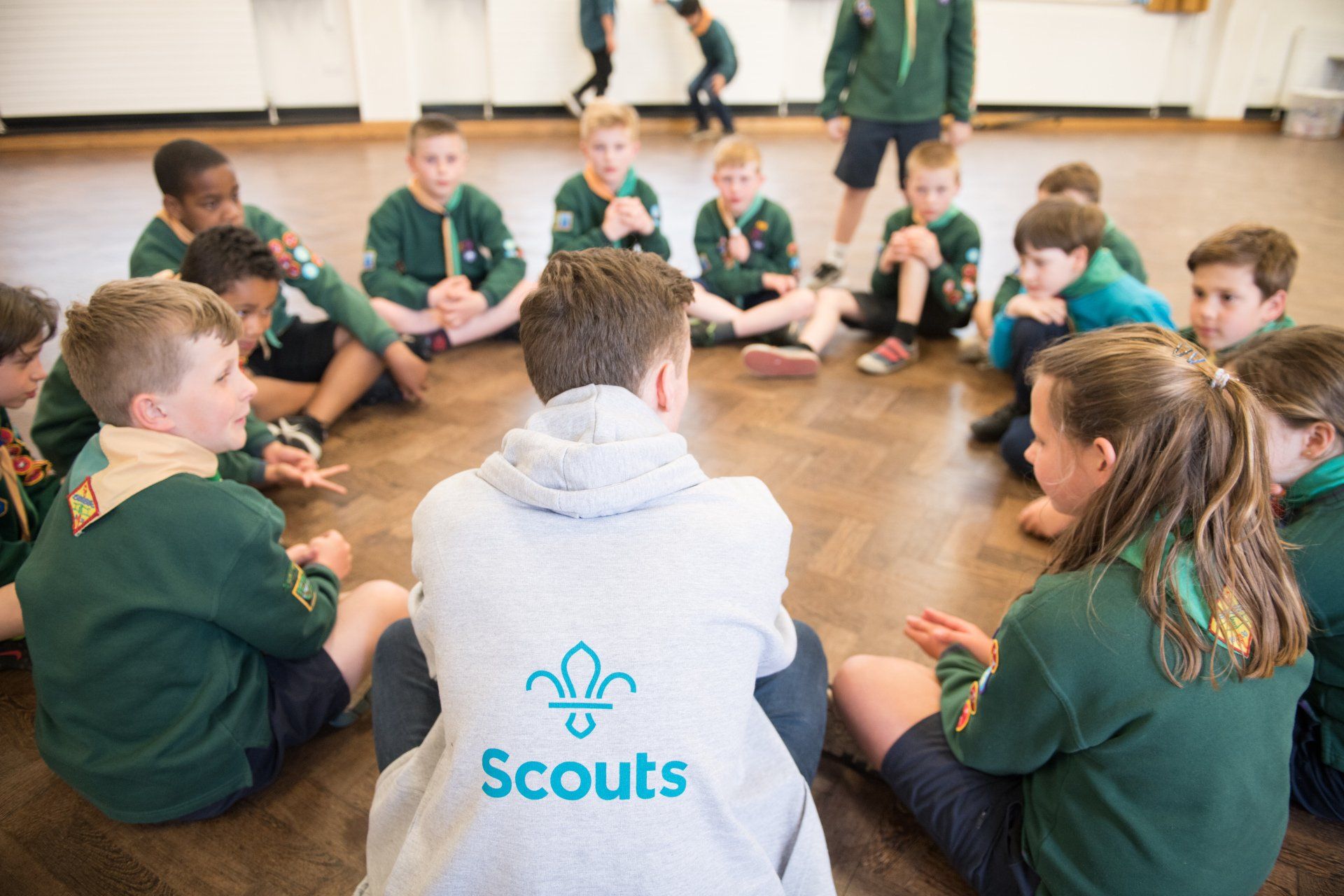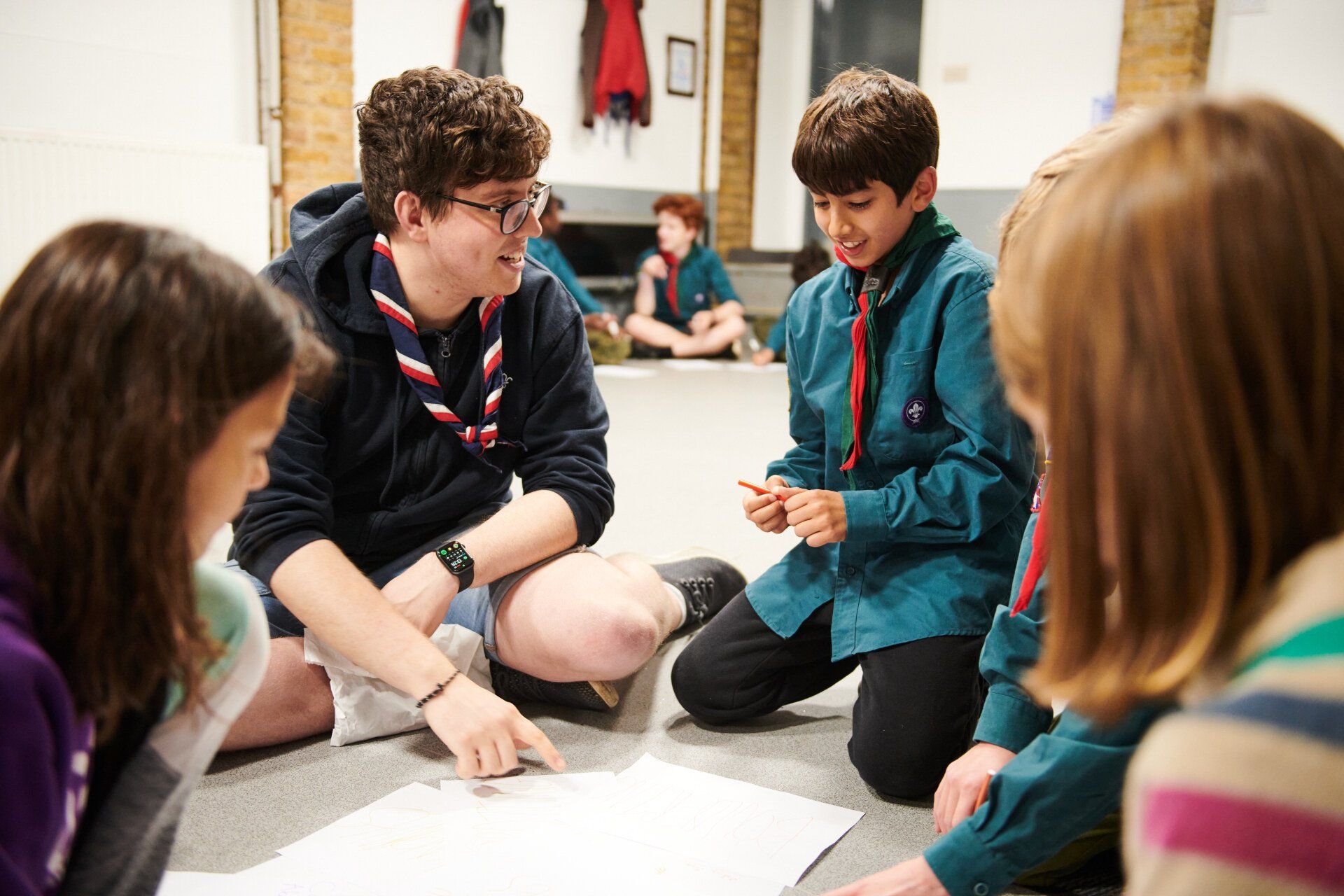Soon after you joined BSO, you probably realised that you had joined something rather special.
Not only special, but unique in British Scouting. You are a member of an Area (or County as it is called in England) that is the youngest in UK Scouting. We have the membership of a small County yet our Districts are the size of regions and even continents. We are many small Groups but united as one global Area and not just on paper; we meet up both physically and virtually and we all know people in BSO in many different countries and diverse climates. Less well known is that although we may be the newest, we have a long history dating back to the dawn of Scouting.
Scouting was founded at an experimental camp on Brownsea Island in 1907. These were not Scouts yet but just boys. The first proper ‘Scout’ camp took place at Humshough, in Northumberland in 1908. Baden-Powell’s book Scouting for Boys was being published in weekly chapters called Yarns and rapidly became very popular. In 1908 boys were forming gangs to do scouting and coercing adults to lead them, the first Scouters, many of them retired military men or vicars.
In Gibraltar a scout troop was formed in March 1908. They took a different route to BSO, becoming an Overseas Territory of the Scout Association. 1st Paris is recorded in an article in HQ Gazette, (the forerunner to Scouting magazine) as opening in November 1909. The same year Scouting was started in Shanghai by British merchants working in the International Settlement which was formed to help foreign countries trade with China. The 1st Falklands troop existed before May 1912. These and many other overseas Groups for British children opened at this stage. Details vary; much is just scraps of written information in old books or log books. Troops were not registered centrally at HQ until 1928 so there is a lot of conjecture on who was the very first troop. But troops overseas were definitely there among them.
1n 1910 ties with Imperial Scout HQ in London were very loose due to the slowness of communications. Telegraph existed but only companies had telephones for official use, so mail usually went by ship as airmail was not developed until a decade or more later, aided by the improvement of aircraft during the 1914-18 World War. So even a quick reply took a couple of months or so depending where you were. Leaders were not officially trained so standards varied. Many Scouters were military men who learnt the rudiments of scouting such as drill, shooting, semaphore signaling, knots and tracking in the British Army or Navy.
The Groups were dealt with individually by HQ, in fact we did not have a collective name for many years. But with the rapid expansion of the empire, policed by many military garrisons and then the discovery of oil in the 1930s, places with families all opened Scout groups, and gradually they became known as British Troops (or Groups) in Foreign Countries. After World War II with the occupation of western Germany, British Scouts there were so numerous that in 1947 they could form their own County called British Scouts Germany (BSG). As British troops spread into Benelux and France with NATO, BSG was renamed British Scouts Western Europe or BSWE in 1952. At the same time the opportunity was taken to rename other Groups around the world British Groups Abroad (BGA). BSWE and BGA continued as separate Counties until the withdrawal of British forces in Europe made BSWE unsustainable and the counties were merged again and renamed BSO in 2013.
This is the briefest outline of BSO’s past to make you aware of our rich and unique history which I will expand on down to individual Group level in future issues of Far & Wide. So I end with a heartfelt plea. Your Scouting of today is the history of tomorrow. Is it recorded safely in the cloud? Not just the successes but the stories behind the activities, the restrictions and the difficulties experienced in delivering good Scouting in your part of the world that gives a true record and makes it more interesting reading. Don’t forget to annotate all pictures to make them understandable. In the old days there were solid written records and hard copy photos. But in this ephemeral electronic world it’s so much easier to lose it. Don’t let it be your fault.
Happy Scouting!
Tony Dunn
BSO Area Historian

Capt T.H. Baker (seated left end of middle row above), was a retired naval officer who in November 1909, formed the first troop in Bangalore, India, which according to TSA records was also the first in Asia. Photo taken mid-1912.
Share:




